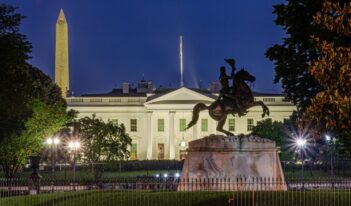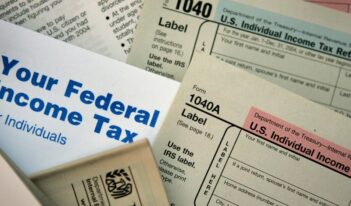
Recent legislative process that led to tax changes fell short in terms of key principles of democracy.
Anyone who followed the recent tax reform process in Congress can be forgiven for worrying about the health of American democracy.
Meeting behind closed doors, House and Senate Republicans reached a secret deal on new legislation. Their final round of negotiations followed an earlier rushed legislative process that lacked meaningful public hearings and culminated in a middle-of-the-night vote in the Senate on legislation most Americans oppose. Overall, the tax reform process looked nothing like what most Americans were taught about how a bill becomes law.
Of course, democratic life has never been tidy. That is probably why Winston Churchill observed that “democracy is the worst form of government — except for all those other forms.”
The tax bill’s saga, though, does raise alarm bells about American democracy. In healthy democratic systems, governments live up to four core values about how decisions get made. Unfortunately, the recent tax legislation failed against three of these values — with the verdict still out on the fourth.
The first democratic value can be called “democracy as deliberation.” Through a process of open debate, public officials search for common ground over policies that advance the general welfare. Framers of the Constitution had this ideal in mind when they designed the Senate to promote discourse rising above narrow interests.
The recent tax bill process failed miserably in terms of deliberation. Most key decisions were made in secret, with loads of backroom meetings with lobbyists. Congress held no significant committee hearings nor engaged in any extended debate.
Granted, lawmaking may often resemble the making of sausage, to borrow the unpleasant metaphor attributed to Otto von Bismarck. But even against other legislative benchmarks, Republicans’ recent tactics have sunk to new deliberative lows. When Congress last adopted major tax reform in 1986, it held nearly 70 committee hearings. Even the Democrats’ oft-derided process leading to the Affordable Care Act involved many days of public hearings and committee mark-ups.
Reacting to the recent Senate tax vote, the American Enterprise Institute’s preeminent congressional scholar, Norm Ornstein, declared, “There has never been a more outrageous, revolting, unfair process to pass a corrupted bill in the history of Congress.” Democratic deliberation this was not.
The tax bill also failed under a second value: “democracy as representation.” Here the idea is that policy decisions should reflect public preferences. Yet, polls indicate that no more than about 30 percent of the public approves of the Republicans’ plan — making it the least popular tax cut package in decades. According to Gallup, only 2 percent of Americans believe taxes are the most important problem facing the country.
Decision-making over the tax plan also fared poorly in terms of a third democratic value: “democracy as virtue.” This value speaks to how public officials and citizens conduct themselves in the public sphere. English political philosopher John Stuart Mill emphasized that when people are given a say in government decisions, their engagement will lead them to rise above their own self-interest and think about the overall welfare of their fellow citizens.
In the recent tax debate, although some plan supporters may genuinely believe that cutting taxes will help the economy, the best evidence assembled by the Tax Policy Center, the Joint Committee on Taxation and Congressional Budget Office undercut any such purportedly public-spirited beliefs. The plan’s regressive skew — including cuts in tax rates for corporations and the wealthiest individuals — only bolstered the impression that self-interest drove the process more than considerations of the general good.
Strikingly, although many corporate leaders spoke out earlier this year against President Donald Trump’s travel ban, immigration changes, and comments about Charlottesville, few such voices raised concerns about the tax plan, even though it will add significantly to the nation’s debt.
Finally, a fourth democratic value emphasizes “democracy as insurance.” Democratic elections give citizens an ability to check their representatives when decisionmaking goes awry. Winston Churchill put it best when he said, “If I had to sum up the immediate future of democratic politics in a single word I should say ‘insurance’…insurance against dangers from abroad” as well as “insurance against dangers scarcely less grave and much more near and constant which threaten us here at home.”
On this score, the verdict remains out. By all accounts, Republicans saw great urgency to pass a tax bill to accomplish something in their first year in control. Yet, whatever benefits tax reform may bring Republicans from their financial backers, its passage will come at a substantial risk from the broader electorate. The tax plan’s overall tilt toward corporations and the wealthy may only reinforce ordinary Americans’ anger over a federal government that they see ignoring their needs.
Republicans’ recent electoral losses in Alabama, New Jersey and Virginia suggest that voters may well decide to cash in on their insurance policy next November and flip control of one or both houses of Congress. If they do, perhaps the nation can find a way to return to a healthier democracy in terms of deliberation, representation, and civic virtue too.
An earlier version of this essay originally appeared in The Hill.




